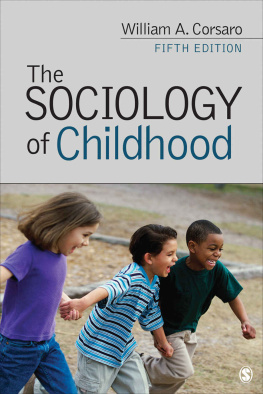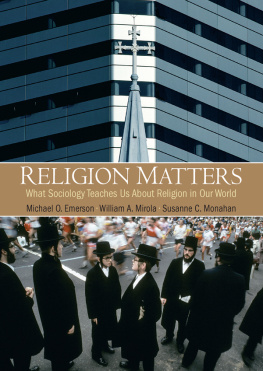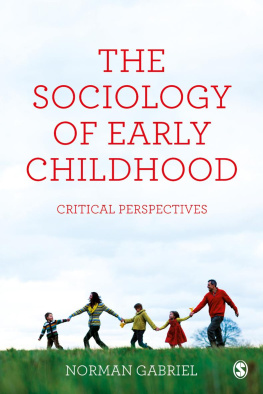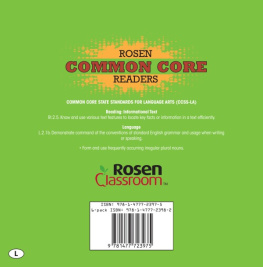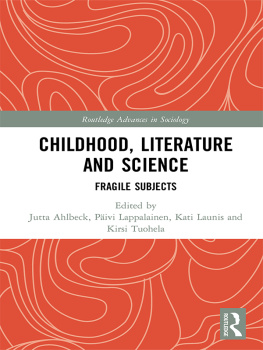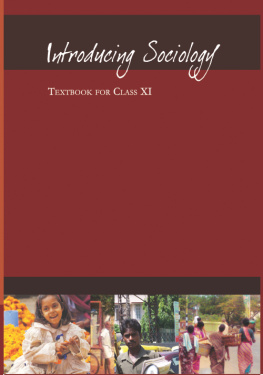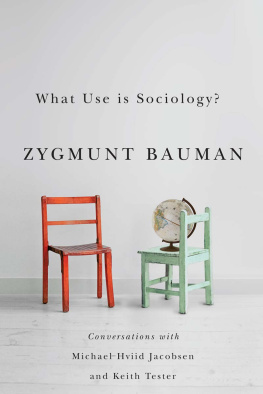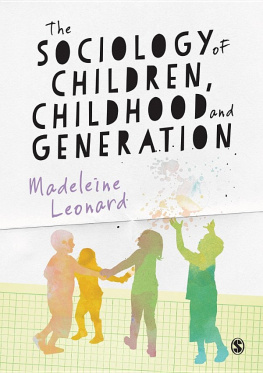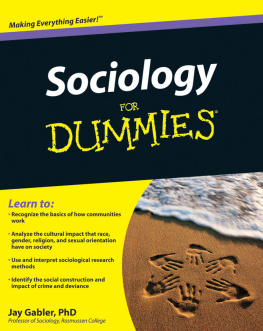Names: Corsaro, William A., author.
Title: The sociology of childhood / William A. Corsaro, Indiana University, Bloomington.
Description: 5th edition. | Los Angeles : SAGE, [2018] | Includes bibliographical references and index.
Identifiers: LCCN 2017000914 | ISBN 9781506339900 (pbk. : alk. paper)
Subjects: LCSH: Children.
Classification: LCC HQ767.9 .C675 2018 | DDC 305.23dc23 LC record available at https://lccn.loc.gov/2017000914
Acquisitions Editor: Jeff Lasser
Editorial Assistant: Adeline Wilson
Production Editor: Kimaya Khashnobish
Copy Editor: Ellen Howard
Typesetter: C&M Digitals (P) Ltd.
Proofreader: Rae-Ann Goodwin
Cover Designer: Candice Harman
Marketing Manager: Jennifer Jones
Contents
Pages
Preface
This fifth edition of The Sociology of Childhood, like the first four editions (published in 1997, 2005, 2011, and 2015), is about children and childhood from a sociological perspective. It brings together my ideas and experiences gained from research and teaching in this area over the past 42 years. Sociology has now established a tradition for studying children and childhood; although still understudied, these are no longer relegated to the margins of the field. There are now, in addition to the Sociology of Childhood, other basic texts in sociology on children or childhood, and a growing number of courses on the sociology of childhood are now offered at colleges and universities.
New and important theoretical and empirical work has been done by a number of scholars who advocate the conceptual autonomy of children and childhood (Alanen, 2000, 2009; Alanen, Booker, & Mayall, 2015; Boocock & Scott, 2005; Bragg & Kehily, 2013; Corsaro, 2003; M. Honig, 2009; James, Jenks, & Prout, 1998; N. Lee, 2001; Leonard, 2015; Mayall, 2002; Prout, 2005; Qvortrup, 2009; Shanahan, 2007; Thorne, 1987; Wyness, 2016). Their work focuses on children as the basic units and categories of study. Children and childhood become the center of analysis; they are no longer linked to other categories, such as families or schools, on which they are supposedly dependent (Qvortrup, 1994a, 2009). In addition, we have seen substantial growth in membership in the research section of Sociology of Children and Youth in the American Sociological Association and in the thematic group on Sociology of Childhood in the International Sociological Association.
In this new edition, I have updated the explosion of new research on children, focusing especially on studies of peer relations; friendship; childrens peer culture; childrens consumer culture; children, the media, and new technologies; and the social problems of children. I have also updated statistical indicators on the quality of childrens lives in both developed and developing societies. In addition, I have added new discussions of changing perspectives of children and families; immigrant children; peer aggression and bullying; the resilience of children and youth in physical and emotionally challenging circumstances like disasters, conflicts, wars, and violence; children and the environment and sustainability; and collective identity, intergenerational relations, and civic society.
Even though much is new in this edition, I must point out that it is not possible to cover what is now such a vast quantity of theory and research highly relevant to a new sociology of childhood. For example, there is a great deal of reflection regarding various theoretical approaches in the new sociology of childhood and childrens media and culture that is addressed in much detail in other books and handbooks (Drotner & Livingstone, 2008; Prout, 2005; Qvortrup, Corsaro, & Honig, 2009). Therefore, my coverage of the topic is by no means all encompassing. I focus much more on childrens relationships with peers than with adults (for example, see Leonard, 2015, who takes a more intergenerational approach), and my coverage of childrens peer cultures generally ends in preadolescence, at the age of 12. Furthermore, I offer an interpretive perspective to the sociology of childhood, which I contrast with more traditional socialization or outcome approaches to children and child development. In the process, I slight much of the good work in the socialization tradition, but this does not mean I feel there is no place for socialization studies in the sociology of childhood (see Handel, Cahill, & Elkin, 2007, for a more traditional approach to childhood socialization).

